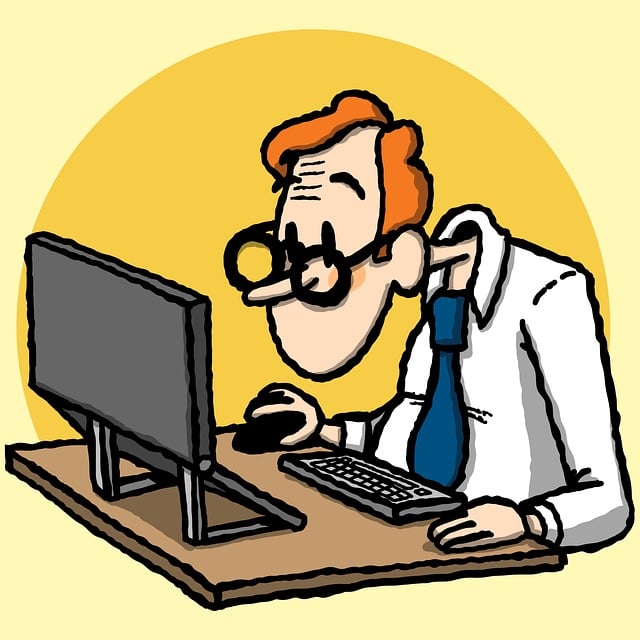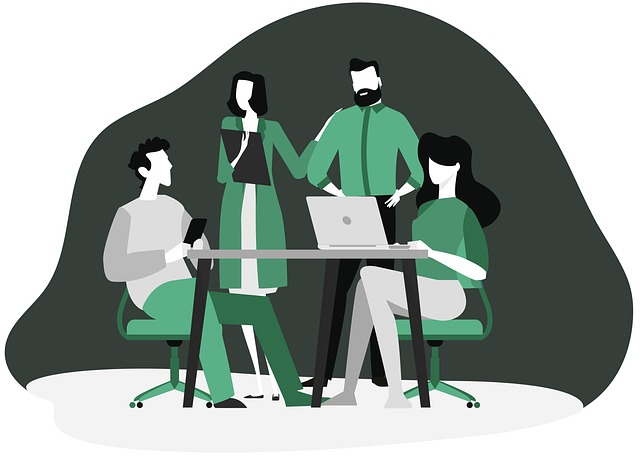

“El trabajo lo hizo Dios como castigo”; era una estrofa de una famosa canción que escuché de niño. Con el tiempo entendí que la expresión era una tergiversación de la idea del trabajo desde una de las perspectivas teológicas. Claro, ahora entiendo que detrás de las palabras subyacen más de un mensaje e intenciones que no exploraré aquí por el momento. No obstante, les daré una aclaración desde mi punto de vista luego de leer las escrituras judeocristianas y espero que los practicantes de otros credos entiendan. El trabajo original de Adán (el primer hombre) era darles nombre a las criaturas. Así que el trabajo no era un castigo en sí mismo, además implícito, conllevó la encomienda del cuidado de los animales y de toda la creación. ¡Bueno, después de la caída, hay otro canto en cuanto a ganarse el sustento con el sudor de la frente, que, aunque pertinente a los propósitos de la presente, asumiremos como un legado!
Tal como lo veo, parece que el trabajo va en dirección a cerrar un ciclo: de lo manual al pensamiento o viceversa. Acabo de fabricar o construir la frase bajo la premisa de que toda obra es precedida por la idea o pensamiento, incluso las más manuales si lo pensamos bien.
Esta parafernalia divagatoria es para introducirles al meollo del emprendedor de las ideas, que transita de la era de la información (o del conocimiento en formato digital) a la era del pensamiento asistido por la inteligencia artificial. Quizás, un hecho inédito y acotado por el cambio del milenio. En tal sentido, hoy acontecen cambios paradigmáticos que de seguro estudiarán nuestros descendientes si sobrevivimos a nosotros mismos.
Sí, como humanidad, pretendemos trascender del trabajo manual de las eras artesanales e industriales a la expresión mayoritaria del trabajo en las esferas de las ideas. ¿Saben? Siempre han existido trabajadores del pensamiento, verbigracia, los filósofos y artistas, quienes en otro tiempo eran sostenidos, principalmente, por los mecenas de la sociedad. Pero que ahora, con el auge de la automatización, que promete sustituir el modelo de la escasez por uno de abundancia (quimérico – utópico), esperan aprovechar una nueva época para el florecimiento del pensamiento y de las artes. Suena demasiado idílico como para ser verdad. El tiempo lo dirá.
Mientras tanto, enfrentados a la mengua del trabajo tradicional, se abrió la frontera para el emprendimiento digital. Maestros y artistas incursionando en los mercados dentro de la web. Extrema competencia que dificulta la visualización por muy excelsos que sean los talentos y conocimientos.
Veo a excelentes ensayistas, escritores de ficción y poesía que pasan desapercibidos entre la vorágine de creadores de contenido. Estos últimos fingen ser artistas. En realidad, están rendidos a pretensiones comerciales, rasgando las fronteras de la ética sin ningún pudor.

Imagen de Arivle One en Pixabay
¿Cuántos de vosotros, que me leéis, lo han vivido en carne propia?
Aquí les digo, ¡no os amilanéis! Esforzaos…
Veo un combate en contra del uso de la inteligencia artificial. ¡Y no os niego que tengáis válidas razones! Además, estoy muy consciente de los peligros reales en cuestión de esta tecnología, pero también hay que admitir que quienes sepan adaptarse obtendrán muchos beneficios. Claro, confío en que la mayoría nos adaptemos, por aquello de los cuestionables preceptos de la teoría evolutiva darwiniana.
Por fortuna, aún nos queda nuestra principal competencia, el pensar con criterio, simplicidad y sentido común, en un entorno donde los algoritmos, cada día más complejos, procesan nuestra información, pero que todavía son incapaces de reemplazar el juicio humano y la perspectiva de nuestra consciencia.
Así que, tú, emprendedor del pensamiento que me lees, abócate por mejorar tus habilidades y destrezas en cuanto al pensamiento crítico, analizando temas complejos para detectar sesgos que permitan construir argumentos sólidos. Sigue ejerciendo la creatividad al transformar datos, emociones, sentimientos en narraciones y descripciones que establezcan conexiones imposibles para una máquina. Transmite y vive la empatía en la creación de personajes, reales o ficticios, que hagan vibrar a los lectores. Explora temas para darles nuevas interpretaciones sin miedo a caer en los moldes del algoritmo.
De seguro, más de uno dirá: “Eso hago…, pero, aun así, nadie me ve, ni lee, ni mucho menos me sigue”.
Bueno, todos estamos padeciendo el legado de Adán, en un mundo hostil, corrijo: competitivo; bajo las leyes del algoritmo. Tal como en el mercado del mundo real, un producto se vende, no porque sea excelente, sino porque está a la vista y al alcance de todos. Claro, si es malo, solo los ingenuos y tontos lo comprarán más de una vez. Así que esfuérzate primero en la calidad del producto, sea este, por ejemplo, un e-book o cualquier producto digital, y luego domina los algoritmos de exposición o consigue las audiencias para los productos que ofreces.
Otro consejo, y repito, no os amilanéis. Sé insistente con inteligencia, aprende de los errores hasta que alcancéis el éxito. De seguro, no será como lo imaginaste en el principio, pero lo obtendréis con la perseverancia. No en balde el adagio bolivariano: “Dios concede la victoria a la constancia”.
Láncense a emprender en el ciberuniverso. No teman, ya tienen experiencias en la criptofera de Hive. ¡Expándanse y sean embajadores de nuestra comunidad! Esperamos leer sus experiencias de éxito… ¡Ah… incluso de aquellos fracasos que los hicieron crecer!
Saludos, mis queridos emprendedores. Con el favor de Dios, nos veremos pronto.

Imagen de LingArch Translation en Pixabay
**Nota:** Se me ocurrió la idea de pedir una opinión a ChatGPT (Bueno, un análisis: las LLMs no opinan per se, solo simulan una opinión), y me hizo recomendaciones válidas con cierta lógica aplicable, pero al final, no le hice caso. ¿Saben por qué? Las divagaciones escapan de los rediles de los artículos sin alma de la IA. Divagar es una conversación en donde las ideas fluyen sin pautas. Así escribo cuando divago bajo el riesgo de ser incoherente. Claro, la edición me ataja un poco de descarrilarme en el sentido metafórico.

Una divagación original de @janaveda
Imagen de portada de Richard Duijnstee en Pixabay
¡Cansado! ¿Ya no te satisfacen las redes sociales tradicionales?
Entonces, te invito a conocer Hive presionando aquí.
Únete a nuestra comunidad global, en donde la libertad sin censura en nuestro norte.



The entrepreneur in the era of thought jobs
“God made work as a punishment” was a verse from a famous song I heard as a child. Over time, I understood that the expression was a distortion of the idea of work from a theological perspective. Of course, I now understand that behind the words lie more than one message and intention, which I won't explore here for the moment. However, I will give you a clarification from my perspective after reading the Judeo-Christian scriptures, and I hope that practitioners of other faiths will understand. The original job of Adam (the first man) was to name creatures. So, work wasn't a punishment in itself; moreover, implicitly, it entailed the care of animals and all of creation. Well, after the Fall, there is another song about earning a living by the sweat of one's brow, which, although pertinent for this article, we will assume as a legacy!
The way I see it, it seems that work is moving toward closing a cycle: from manual labor to thought, or vice versa. I just fabricated or constructed the phrase under the premise that every work is preceded by an idea or thought, even the most manual if we think about it carefully.
This rambling paraphernalia is to introduce you to the core of the idea entrepreneur, who is transitioning from the information age (or knowledge in digital format) to the age of artificial intelligence-assisted thought. Perhaps, an unprecedented event, limited by the turn of the millennium. In this sense, paradigmatic shifts are occurring today that our descendants will surely study if we outlive ourselves.
Yes, as humanity, we aim to transcend the manual labor of the artisanal and industrial ages to the majority expression of work in the spheres of ideas. You know? There have always been thought workers, for example, philosophers and artists, who were once supported primarily by society's patrons. But now, with the rise of automation, which promises to replace the model of scarcity with one of abundance (chimerical-utopian), they hope to take advantage of a new era for the flourishing of thought and the arts. It sounds too idyllic to be true. Time will tell.
Meanwhile, faced with the decline of traditional work, the frontier for digital entrepreneurship has opened. Teachers and artists are venturing into online markets. Extreme competition makes it difficult to see, no matter how excellent their talents and knowledge.
I see excellent essayists, fiction writers, and poets going unnoticed amid the maelstrom of content creators. The latter pretend to be artists. In reality, they are surrendered to commercial pretensions, shamelessly pushing the boundaries of ethics.

Imagen de Arivle One en Pixabay
How many of you who read this have experienced this firsthand?
Here I say, don't be intimidated! Strive...
I see a fight against the use of artificial intelligence. And I don't deny that you have valid reasons! Furthermore, I am well aware of the real dangers looming in this technology, but it must also be admitted that those who know how to adapt will reap many benefits. Of course, I trust that most of us will adapt, given the questionable precepts of Darwinian evolutionary theory.
In this sense, we still have our core competency: thinking with judgment, simplicity, and common sense, in an environment where increasingly complex algorithms process our information, but are still unable to replace human judgment and the perspective of our consciousness.
So, you, the thought entrepreneur reading this, strive to improve your critical thinking skills and abilities, analyzing complex issues to detect biases that allow you to build solid arguments. Continue exercising creativity by transforming data, emotions, and feelings into narratives and descriptions that establish connections impossible for a machine. Transmit and live empathy in the creation of characters, real or fictional, that move readers. Explore themes to give them new interpretations without fear of falling into the algorithm's mold.
Surely, more than one of you will say: "That's what I do... but still, no one sees me, reads me, much less follows me."
Well, we're all suffering from Adam's legacy, in a hostile world—I correct that: competitive—under the laws of the algorithm. Just as in the real-world market, a product sells not because it's excellent, but because it's visible and accessible to everyone. Of course, if it's bad, only the naive and foolish will buy it more than once. So, first, work on the quality of your product, be it, for example, an e-book or any digital product, and then master the exposure algorithms or build audiences for the products you offer.
Another piece of advice, and I repeat, don't be discouraged. Be persistent and intelligent, and learn from your mistakes until you achieve success. Surely, it won't be what you imagined at the beginning, but you will achieve it with perseverance. It's no wonder the Bolivarian adage: "God grants victory to perseverance."
Launch into entrepreneurship in the cyber universe. Fear not, you already have experience in the Hive cryptosphere. Expand and be ambassadors for our community! We look forward to reading your success stories... Oh... even those failures that made you grow!
Greetings, my dear entrepreneurs. God willing, we'll see you soon.

Image by LingArch Translation on Pixabay
**Note:** I had the idea to ask ChatGPT for an opinion (well, an analysis: LLMs don't give opinions per se, they just simulate an opinion), and he made valid recommendations with a certain amount of applicable logic, but in the end, I ignored him. Do you know why? Ramblings escape the folds of soulless AI articles. Rambling is a conversation where ideas flow without guidelines. This is how I write when I ramble, at the risk of being incoherent. Of course, editing keeps me from going off the rails a bit in the metaphorical sense.

A brief essay by @janaveda in Spanish and translated to English with www.deepl.com (free version)
Cover image by Richard Duijnstee on Pixabay
Tired...! Are you no longer satisfied with traditional social networks?
Then I invite you to get to know Hive by clicking here.
Join our global community, where uncensored freedom is our north.












